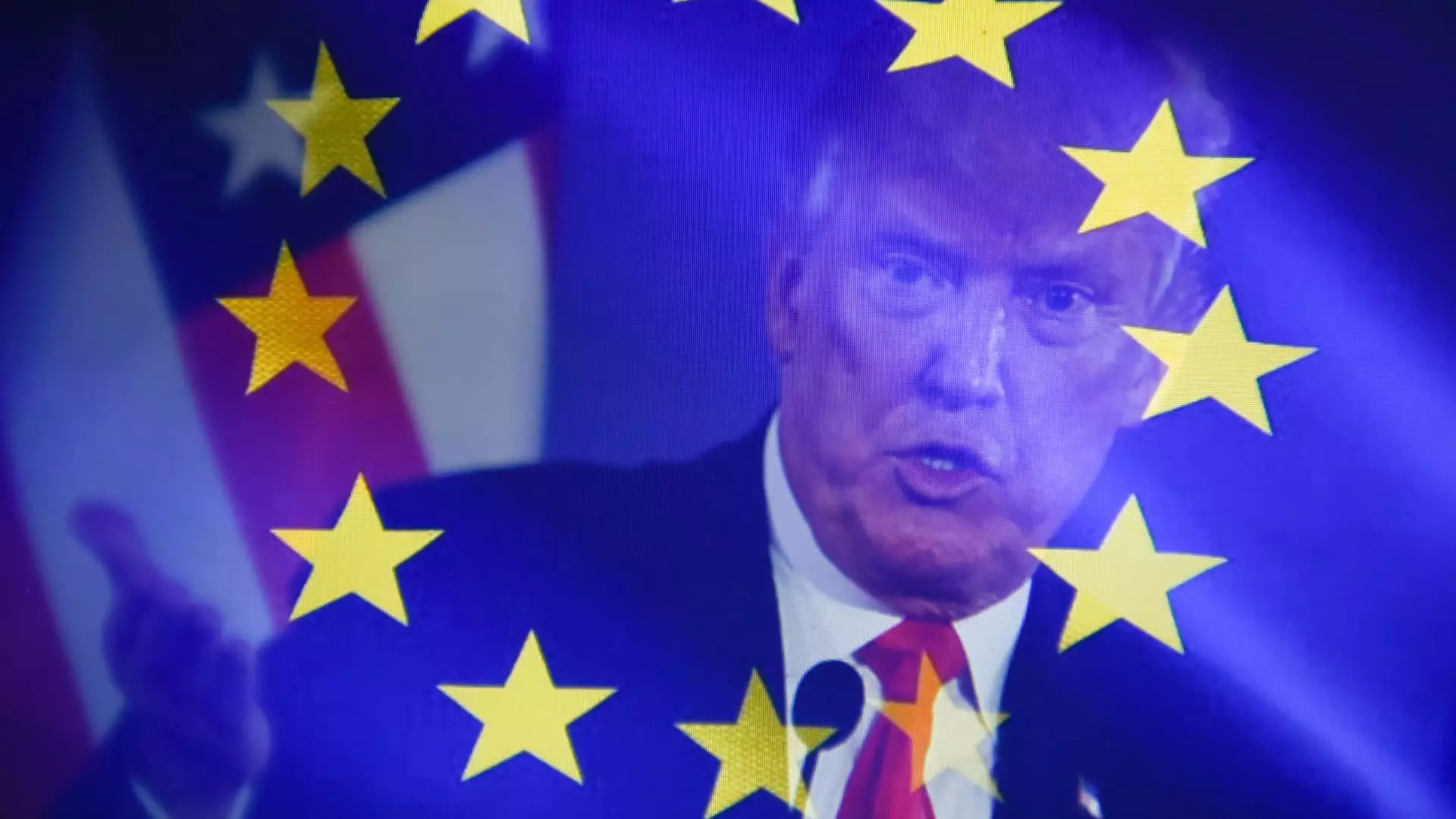On the surface, the European Union’s decision to pause the implementation of retaliatory tariffs on a broad array of U.S. goods for a period of 90 days appears to be a constructive gesture of goodwill. European Commission President Ursula von der Leyen’s announcement comes on the heels of a similar reprieve from the White House concerning its own tariff rates. But while some may view this as a diplomatic overture intended to facilitate fruitful negotiations, it starkly highlights the precarious balance of international trade relations. Tariffs, fundamentally designed as punitive measures against perceived economic transgressions, have morphed into a dangerous game where both parties wield economic clout as a weapon, risking an all-consuming trade war that could unravel decades of progress in global economic cooperation.
The background to this pause is rooted in the backdrop of evolving U.S. trade strategies under President Trump, who has prioritized an “America First” agenda at any cost. The recent implementation of a 25% tariff on steel and aluminum from the EU and other trade partners reveals a blatant shift towards protectionism, setting off alarm bells across the Atlantic. Von der Leyen’s call for “giving negotiations a chance” underscores an uncomfortable truth: businesses and consumers are left dangling in the balance, uncertain of their economic futures as political leaders engage in a high-stakes game of chicken. Through this lens, the cessation of the impending tariffs is not merely a reprieve but also a stalling tactic, a temporary solution that simultaneously obscures the looming risks of trade discord.
Economic Impact: More than Just Numbers
The proposed tariffs span various industries – from clothing and machinery to poultry and grains – signifying a comprehensive attempt to retaliate against U.S. policies. The scope of this potential trade conflict raises serious questions about the economic ramifications, not just for businesses but for everyday consumers. Von der Leyen herself noted that “tariffs are taxes that only hurt businesses and consumers,” which serves as a sobering reminder of the intricacies embedded in the landscape of international trade. If the EU were to enact these tariffs, it would effectively raise prices for European consumers, reducing disposable income and creating a paradox where protectionist measures designed to shield local businesses could end up stifling their growth.
The European leadership’s response to the suggested tariffs suggests an effort to enhance not only negotiations with the U.S. but also to diversify trade relationships altogether. While fostering new alliances may seem prudent, the underlying reality is that such maneuvering could dilute the EU’s collective bargaining power. It’s crucial to recognize that trade is not merely about numbers or goods; it is about fostering relationships that culminate in mutual benefit – the essence of global economic interdependence.
The Broader Implications: Escalation or Opportunity?
Tensions between the U.S. and the EU have notably escalated in recent months, as Trump’s criticisms of the bloc highlight a friction that extends beyond mere trade. His accusations of “unfair treatment” reflect a nationalistic approach that undermines the spirit of collaboration on which international economic relationships have been built. The prospect of retaliatory measures—including targeting U.S. services and technology—could spiral the situation into a far-reaching economic confrontation that negatively impacts growth for both economies.
Yet, in the face of adversity lies the opportunity for constructive dialogue. An equitable resolution could pave the way for the long-sought “zero-for-zero tariff agreement” that von der Leyen has long advocated. The EU’s readiness to hold negotiations signifies a willingness to backtrack from the brink of a protectionist abyss, fostering discussions that could require both sides to reassess their approaches to trade agreements and regulatory frameworks. For liberal centers, the aspiration should not merely be to combat tariffs but to envision a future where collaboration thrives—allowing for innovations and shared benefits that transcend borders.
This situation serves as a crucial lesson for other nations considering similar approaches to trade disputes. Instead of erecting barriers, nations should explore pathways for cooperation, displaying a commitment to mutual growth and stability. Because at the crossroads of trade relationships—where competitive interests meet—is where the potential for a more harmonious economic future lies.


Leave a Reply